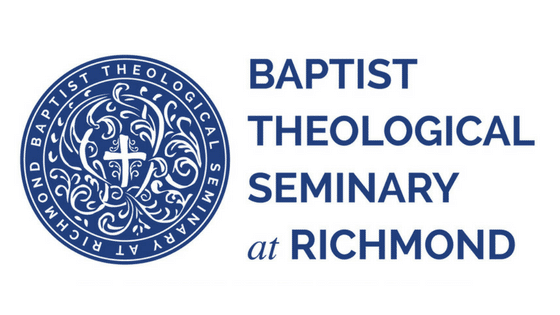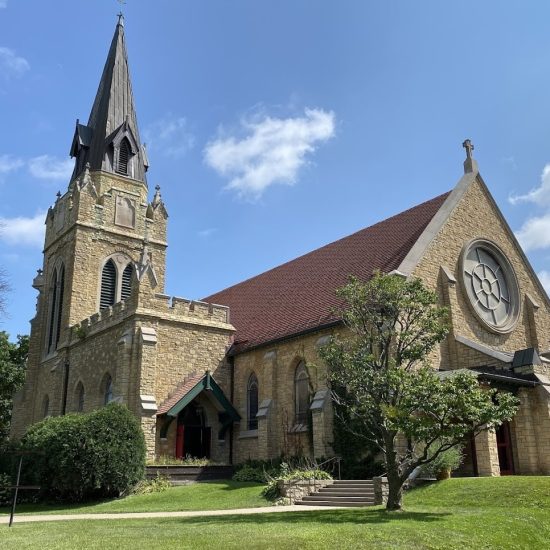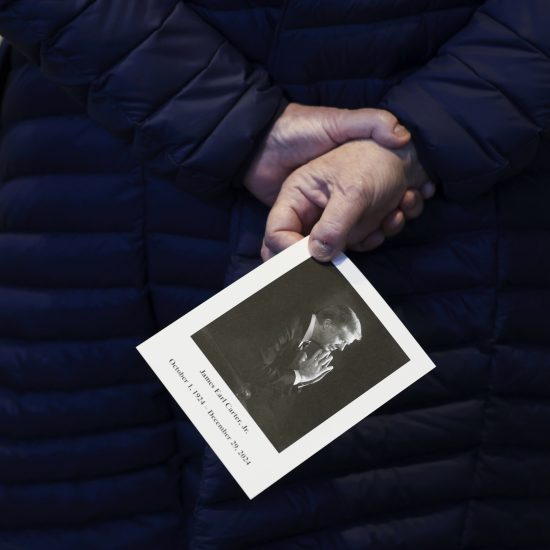
RICHMOND, Va. (CBF) — As its final action, a Baptist seminary that was born in innovation is helping undergird the beginning of two new ventures in theological education. Baptist Theological Seminary at Richmond, which began as a creative response to fundamentalism in Baptist life, offered its last courses and degrees in spring 2019. The final distribution of its remaining assets this month will boost the launch of a new Center for Faith, Justice, and Reconciliation and a Baptist House of Studies at Union Presbyterian Seminary, both based in Richmond.
The Center for Faith, Justice, and Reconciliation is a theological think tank dedicated to building beloved community by promoting justice, systemic change in congregations and communities, and the reconciliation of people and creation. It is committed to carrying on the BTSR tradition of a community of gender inclusivity, racial diversity, and ecumenical commitment.
The CFJR, which held its inaugural board meeting last month, will be housed in the Lou and Randall Lolley Center for Baptist History in the library of Union Presbyterian Seminary. It will provide short-term educational programs for students, congregations, and other communities, a forum for ideas and best practices on issues of racial justice and reconciliation, and resources to equip congregations and communities in advancing the work of justice and reconciliation.
Bill J. Leonard, noted Baptist historian and Founding Dean and Professor of Divinity Emeritus of the Wake Forest University School of Divinity, is chair of the CFJR Board of Directors. The Center’s president is Corey D. B. Walker, Wake Forest Professor of the Humanities at Wake Forest University. He previously was vice president and dean of the Samuel DeWitt Proctor School of Theology at Virginia Union University, a historically black, American Baptist school which was a partner with BTSR and Union in the ecumenical, interracial Richmond Theological Consortium.
 “The vision that inspired the founding of BTSR continues with the establishment of the Center for Faith, Justice, and Reconciliation,” said Walker. “In a time of profound cultural, political, and spiritual crisis rooted in systemic racial injustice, CFJR will extend the legacy of BTSR by offering a unique space to develop distinctive theological perspectives and ideas to aid in building beloved community. This gift provides CFJR with a firm foundation to faithfully respond to the urgency of the moment and live out our faith in the world.”
“The vision that inspired the founding of BTSR continues with the establishment of the Center for Faith, Justice, and Reconciliation,” said Walker. “In a time of profound cultural, political, and spiritual crisis rooted in systemic racial injustice, CFJR will extend the legacy of BTSR by offering a unique space to develop distinctive theological perspectives and ideas to aid in building beloved community. This gift provides CFJR with a firm foundation to faithfully respond to the urgency of the moment and live out our faith in the world.”
Leonard added, “Just as BTSR was founded at a divisive and critical juncture in Baptist life when the denominational status quo wouldn’t hold, the new Center for Faith, Justice, and Reconciliation begins at a parallel moment in our national life when divisions are intense, justice often seems elusive, and when religious traditions and American culture alike require new resources for addressing our chaotic times. We welcome this gift from BTSR to help establish an important gathering place for individuals, community organizations, educational institutions, and congregations in pursuing justice, fostering reconciliation, and nurturing faith.”
The second initiative, a new Baptist House of Studies at Union Presbyterian Seminary, is the result of a partnership among Union, the Cooperative Baptist Fellowship and CBF Virginia. All were partners and supporters of BTSR during its three decades of existence.
Union was represented on the founding board of BTSR, and made available library resources that were critical to the Baptist school’s early accreditation, as well as course cross-registration. CBF Global also was a key partner, funding BTSR as one of its earliest partner schools in the 1990s and offering scholarships and placement support to BTSR students and graduates, as did CBF Virginia.
“Union Presbyterian Seminary is eager to help continue the ministry of BTSR by partnering with CBF and CBF Virginia in establishing a Baptist House of Studies that will further the legacy of Baptist theological education in an ecumenical setting,” said Brian Blount, president of Union Presbyterian Seminary and a board member of the Center for Faith, Justice, and Reconciliation. “The resources provided from BTSR’s remaining asset base will ensure the successful launch of the Baptist House’s exciting new ministry. BTSR’s institutional DNA, spiritual and physical, woven into the identity of UPSem through the Baptist House, even now, sparks a new and wondrous thing that God is doing in our midst.”
Paul Baxley is the executive coordinator of CBF Global and a graduate and former staff member of BTSR. Baxley said, “I am deeply grateful for the decision of the trustees of Baptist Theological Seminary at Richmond to use these unexpected funds to support the birth not only of the Center for Faith, Justice, and Reconciliation but also the Baptist House of Studies at Union Presbyterian Seminary.”
Baxley added, “Like so many others, I have grieved the difficult, painful and necessary decision to close BTSR. It is a sign of resurrecting hope that the final act of BTSR’s trustees was to give life to new innovations that call the church to still more excellent ways of ministerial formation and much greater faithfulness in racial justice. These are the commitments that gave life to BTSR in the first place, and now just as those commitments are carried in the ministries of BTSR alumni and the congregations they serve, they are also extended and enhanced through these new beginnings. In these challenging days they are more essential than ever.”
The grants of approximately $200,000 to the Center and $100,000 to the Baptist House are designated for operating expenses. The Center for Faith, Justice, and Reconciliation will offer its first programs in spring 2021; the Baptist House will enroll its first students in the fall. The Baptist House also will benefit from Union Presbyterian Seminary’s commitment to provide full tuition scholarships for up to 40 qualified full-time Baptist residential students.
Bill Wilson, director of the Center for Healthy Churches, is chair of the BTSR board. “It’s a privilege to support these new initiatives as a way of honoring the legacy of Baptist Theological Seminary at Richmond,” he said. “Each will carry on the DNA of the seminary by furthering theological education that is racially inclusive, ecumenically focused and rooted in Baptist heritage. And each honors relationships from BTSR’s life that now will continue to bear fruit.”






